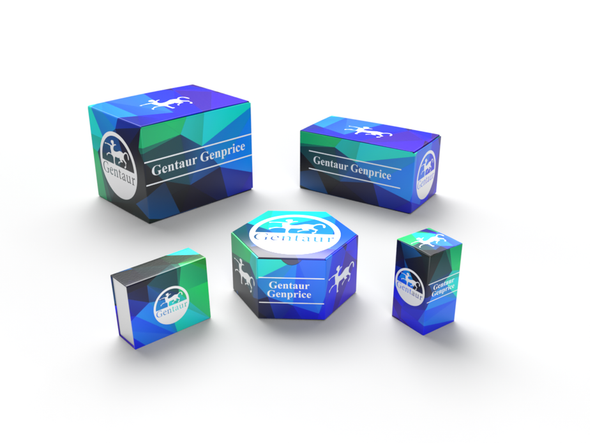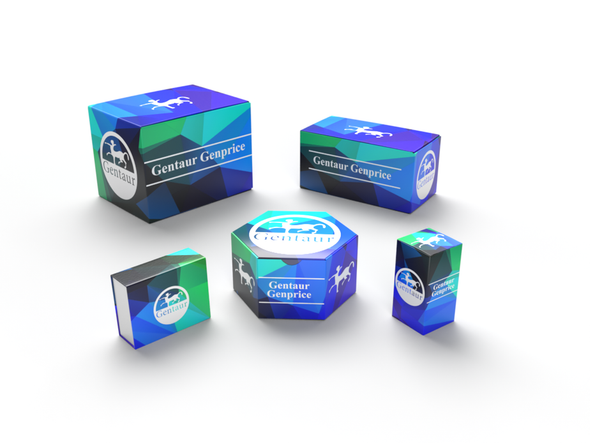740
Bovine Interferon Tau (IFNt) ELISA Kit | AE58169BO
- SKU:
- 740-AE58169BO
- Availability:
- Usually ships in 5 working days
Description
Bovine Interferon Tau (IFNt) ELISA Kit | AE58169BO | Gentaur UK, US & Europe Distribution
Species Reactivity: Bovine (Bos taurus; Cattle)
Abbreviation: IFNt
Alternative Name: IFN-T1; TP1; Interferon Tau-1; Trophoblast Protein 1; Trophoblast Antiluteolytic Protein
Application: ELISA
Range: 7.8-500 pg/mL
Sensitivity: 3.1 pg/mL
Intra-Assay: ≤5.3%
Inter-Assay: ≤8.9%
Recovery: 0, 89
Sample Type: Serum, Plasma, Other biological fluids
Detection Method: Sandwich
Analysis Method : Quantitive
Test Principale: This assay employs a two-site sandwich ELISA to quantitate IFNt in samples. An antibody specific for IFNt has been pre-coated onto a microplate. Standards and samples are pipetted into the wells and anyIFNt present is bound by the immobilized antibody. After removing any unbound substances, a biotin-conjugated antibody specific for IFNt is added to the wells. After washing, Streptavidin conjugated Horseradish Peroxidase (HRP) is added to the wells. Following a wash to remove any unbound avidin-enzyme reagent, a substrate solution is added to the wells and color develops in proportion to the amount of IFNt bound in the initial step. The color development is stopped and the intensity of the color is measured.
Product Overview: Interferon tau is a Type I interferon made up of a single chain of amino-acids. In many species of ruminant, it acts as a signaling molecule during pregnancy. It is secreted by the trophoblast cells into the uterine lumen in days 13-21 of pregnancy. It decreases endometrial oxytocin receptors, which then cannot stimulate PGF-2-alpha synthesis, preventing luteolysis. It promotes uterine implantation by increasing protein synthesis in glands. Although its role in humans is not certain, it has been found to bind to the same receptors sensitive to interferon alpha, and thus may have anti-viral properties, as hinted by studies showing its ability to inhibit the reverse transcriptase enzyme found in retroviruses such as HIV. Its low toxicity compared to other interferons also supports its investigation as a potential therapeutic compound.
Stability: The stability of ELISA kit is determined by the loss rate of activity. The loss rate of this kit is less than 5% within the expiration date under appropriate storage condition. The loss rate was determined by accelerated thermal degradation test. Keep the kit at 37°C for 4 and 7 days, and compare O.D.values of the kit kept at 37°C with that of at recommended temperature. (referring from China Biological Products Standard, which was calculated by the Arrhenius equation. For ELISA kit, 4 days storage at 37°C can be considered as 6 months at 2 - 8°C, which means 7 days at 37°C equaling 12 months at 2 - 8°C) .






